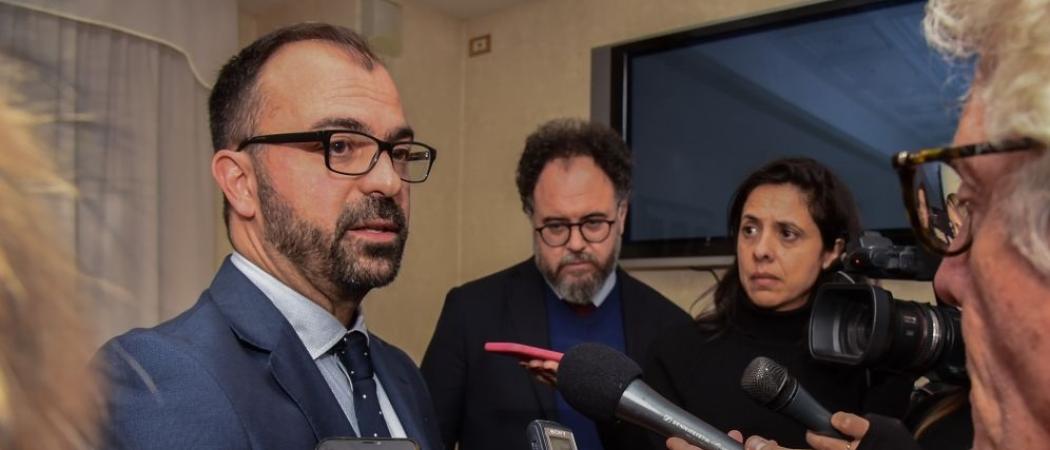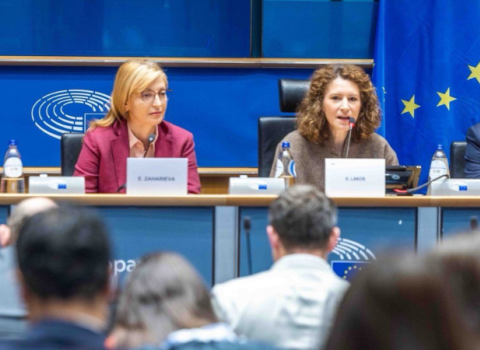‘Trieste Declaration on Science’ paves the way for 17 countries in south-east Europe to boost participation in Horizon Europe and strengthen international research cooperation

Italian minister for education and research Lorenzo Fioramonti at a press conference in Trieste on Friday. Photo: CEI
Science ministers of the Central European Initiative (CEI), a group of countries in central and south-east Europe, have signed the ‘Trieste Declaration on Science’, an agreement to work together to boost participation in Horizon Europe and strengthen international research cooperation in the region.
At a meeting in Trieste, Italy on Friday, the ministers agreed that the CEI will help set up partnerships and collaborative networks in the region to boost the participation of non-EU member states in Horizon Europe. To achieve that, science ministers want to increase the mobility of researchers and of staff exchanges in the region.
CEI has 17 member countries, including the republics of the former Yugoslavia, Italy and EU member states in eastern Europe, but also Belarus, Moldova and Ukraine. The initiative was established in 1989 in Budapest, as communist regimes in eastern Europe began to crumble and is now the largest and oldest forum for cooperation in the region.
The declaration is another sign that poorer EU member states want to boost their performance in research and innovation, along with neighbours from outside the EU.
CEI countries also agreed to establish a network of experts in science diplomacy. “Effective international scientific cooperation requires strong political and diplomatic support,” said CEI secretary general Roberto Antonione.
The next edition of Europe’s largest biennial science conference, the EuroScience Open Forum (ESOF) will take place next year in Trieste, with the theme of strengthening scientific and technological networks in central and south-eastern Europe, and the rest of the continent, on the agenda.





 A unique international forum for public research organisations and companies to connect their external engagement with strategic interests around their R&D system.
A unique international forum for public research organisations and companies to connect their external engagement with strategic interests around their R&D system.